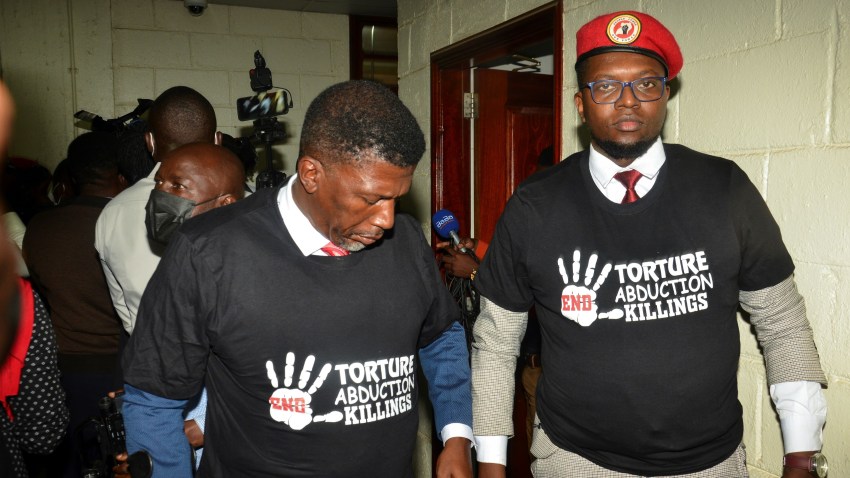KAMPALA, Uganda—David Lewis Rubongoya, secretary-general of the Ugandan opposition National Unity Platform, or NUP, sits in his spare office rattling off the names of party supporters believed to have been disappeared by the country’s security forces. “We’ve never seen them again,” he told me, clutching a list of 25 missing people whose names and photos stare up at him from the page. But, he adds, these are just the individuals whose families contacted the party about their missing loved ones. “There are many others who are too scared to report, to come to us and tell us anything about this.”
Though many of the people on Rubongoya’s list have been missing for almost two years, the NUP also claimed that six of them had been taken by men in military uniform in November, while another three were captured by plainclothes assailants the same month. Articles about enforced disappearances also fill the pages of Ugandan newspapers these days. Most of the victims are young—and many are NUP supporters.
This latest round of abductions recalls the grim environment that characterized Uganda’s 2021 presidential election. That year, Bobi Wine—a popstar turned opposition figure—challenged incumbent President Yoweri Museveni, who has ruled the country for some three decades. At the time, hundreds of disappearances were reported, including some of those on the NUP’s list of 25 victims. In the months before and after the election, opposition supporters and others caught in the crossfire were plucked from street corners and marketplaces, shoved into the back of unmarked Toyota Haise vans—called “drones” by locals—and taken to undisclosed locations around Kampala. Some were later charged in military courts. Others later spoke of torture. Still, others disappeared entirely.

